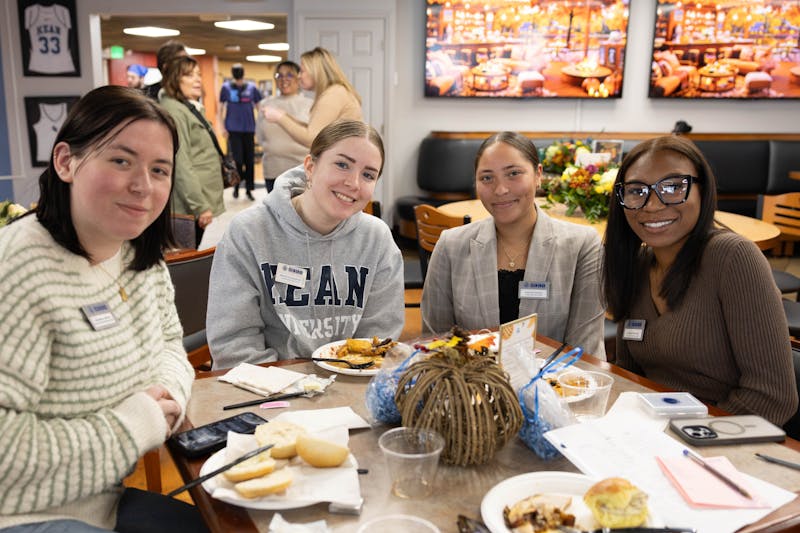Celebrations are known as a time to honor and pay tribute to a specific event that took place in the past. To many, birthdays are considered sacred and sometimes even mandatory celebrations for many to witness. On Tuesday, September 17, 2013, the United States observed the day the United States Constitution was signed, earning the prestigious achievement of becoming the longest active constitutional document in the world.
On Thursday, September 19, 2013 from 12:30 p.m. to 2:00 p.m. the departments of history and political science, the office of student affairs, and the Kean University Pre-Law Society hosted "Contemporary Constitutional Questions: The legacy of the 2013 Supreme Court" at Liberty Hall's carriage house, in honor of Constitution Day. The panel discussion was run by Dr. Abigail Perkiss, a professor of Kean University's department of history, Dr. Robert Hunt, a professor of the department of political science, and Dr. Whitney Strub who is part of the department of history at Rutgers University-Newark.
Perkiss opened the discussion with the legacy of the Voting Rights Act which became a law on August 6, 1965. She stated that the act gave way to the 15th amendment which was ratified a few decades later and in essence denied the federal government to turn away any citizen who wished to vote. "The 1965 Act signaled a dramatic shift in the government's tolerance" Perkiss explained, "for both the legal racial discrimination and the strategies and tactics of many national civil rights reformers."
Today, local governments or states who wish to change the document in any way must first undergo a "preclearance federal oversight process." If a state has a history of discrimination, it is required to receive federal government permission before instilling change, such as voting policies and guidelines. Perkiss added, "This could be an expensive and labor-intensive process, but it was one of the key mechanisms for enforcing the law." Although discrimination has minimized, it continues to exist today with other demographics, such as same-sex marriage.
Strub touched upon Proposition 8, or as many refer to it, Prop 8-a state constitutional amendment that was passed in California in November of 2008. Strub explained that Prop 8 had four legal arguments in favor of the amendment:
· "Furthering California's interest in childrearing and responsible procreation"
· "Proceeding with caution before making significant changes to marriage"
· "Protecting religious freedom"
· "Preventing children from being taught about same-sex marriage in school"
Strub believes that Prop 8 does not have a purpose other than to degrade the prestige and dignity of many lesbians and gays in the state of California. He explains that the amendment also, "reclassifies their [gay's and lesbian's] relationship(s) and families as inferior to those of heterosexual couples."
While Strub touched upon the controversial decision of allowing same-sex marriage, Hunt on the other hand, explored the jurisprudence of Justice Anthony Kennedy who was considered to have critical opinions on topics such as church-state relations, abortion and gay rights. "[It] reveals a justice whose broadly-written opinions reveal a commitment to his understanding of liberty and equality" explained Hunt. "Their broadness also tends to irritate those Justices who do not agree with him in the case at hand."
Hunt closed the discussion explaining the irritation that the broadness caused amongst the Justices, especially those who did not agree with Kennedy. They reminded the audience, "Kennedy was [treated] as a possible swing vote on an often-divided U.S. Supreme Court."
If students have any questions about Constitution Day or would like to learn more about the topics discussed here, please feel free to contact Dr. Perkiss at aperkiss@kean.edu.




